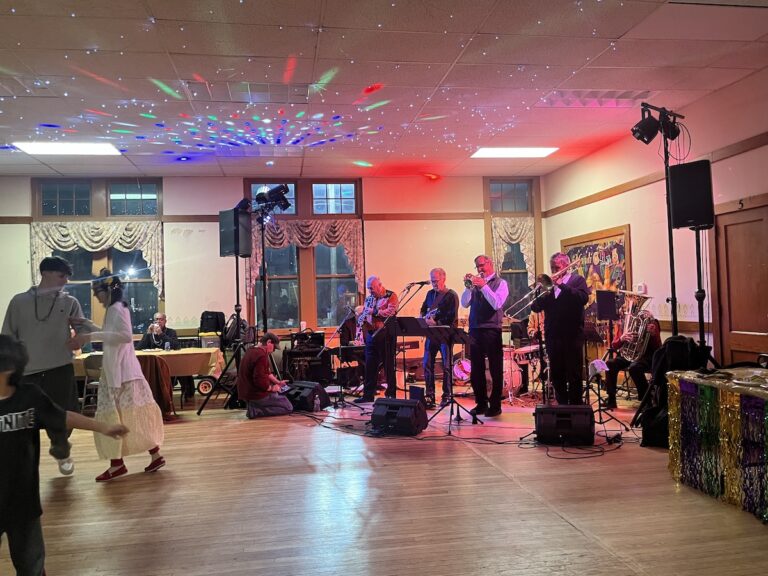Indira Karamcheti on Her Diasporic Experience, Archival Research, and Literature as a Riddle
When Co-Chair of Global South Asian Studies and Associate Professor of Education Studies and Global South Asian Studies Indira Karamcheti first moved to the United States in 1955, she was one of the few Indians in the country. After having an epiphany reading James Baldwin’s “Stranger in the Village” and Edward Said’s “Orientalism,” Karamcheti started down a path of specializing in postcolonialism and diaspora studies, and this translated into a rich history of scholarship, teaching, and, of course, reading and writing. This week, The Argus sat down with Karamcheti to talk about her life, literature, and her lines of work.
The Argus: Tell us about your academic journey.
Indira Karamcheti: Gosh, I have all three degrees in English literature from the University of California, Santa Barbara. I completed my PhD in 1986. My first job was at California State University, Los Angeles. I was there for three years, and then Wesleyan hired me in the English department to teach post-colonial literature. After that, in 2013, I transferred my line of work to the American Studies department. And then in 2023, I moved my life once again, to the Global South Asian Studies (GSAS) program. I was very excited to do so, because this is, after all, something that I have been thinking about both on personal grounds as well as professional grounds for probably my entire professional life. So it feels like, in a sense, coming home. But sometimes when I’m feeling particularly vexed, I think to myself, “They’ve just sent me back where I came from.” That’s the other side of it, right, coming home or being sent back, just depends on my mood.
A: What did the shift from the English Department to American Studies and then to GSAS look like?
IK: It was very interesting. I love literature. I love talking about literature. All my training is in literature. I really like that, but…it’s very important to look at the viewpoint from which you’re studying anything. And so it became increasingly important to me to think about what postcolonial means and what postcolonial studies can be. After all, we’re studying it from the point of view of being here in what is currently the biggest empire, with its global influence. I continue to teach literature, but now very much involved in what American Studies means right now. Of course, a lot of what I had been thinking and teaching was about the South Asian diasporas, and that’s something that very much fascinates me. Of course, this is a diaspora that predates imperialism. But the whole issue, the globality of it, really just intrigues me. To be able to be in the GSAS program is just absolutely fulfilling. So I get to really understand this or to try to understand it, and I get to teach it to others who are interested in it too.
A: What sparked your interest in post-colonial studies?
IK: May I say that every scholar essentially looks for themselves in what they study? Scientists might deny that, but I think it’s no less true for them. We look for ways to explain ourselves. I came to this country in 1955 as a child of seven. My father was part of that so-called brain drain—[when] the United States reached its position as the new empire post-World War II, it’s also the era when India becomes a nation, when Pakistan becomes a nation. To come into the United States in 1955 was to come here at a time of the barred zones and immigration laws. India, like other South Asian and African countries, was under a quota system for immigration. So when I came to this country, there were very, very few Indians. That meant that I grew up in a social context very different from that found by South Asian Americans now. And in the school system, where [I was] a faculty brat, there was nothing that talked about minorities, about the multiplicity of experiences in the United States.
A: How did that shift for you over time?
IK: By the time I got to graduate school, the academy was beginning to open up. I was in California in the 1960s. So there was the gay rights movement, culture wars, [and the] civil rights movement. By then, there was an American Studies Department, and that was like the avant-garde. I don’t think people are aware of these things, but it’s kind of an epiphany when you find things that help you explain your own life, which is one of the functions of literature, right? So mine was through African American literature, [which] gave me a way to understand a global structuring of peoples based on cultures, races, languages, and histories. I even remember the single text that did it for me, and that was James Baldwin’s [“Stranger in the Village.”] I read it as a boarding school student in a finishing school in Switzerland, and it was a revelation [for me], because it helped me understand that there were other people who had been similarly displaced and replaced and placed in positions where they were told they did not quite belong. It was fabulous. I had the chance to meet him many years later. But that was my first kind of inkling that there were ways of connecting what I was learning to what I was living.
A: That is so amazing to hear. Can you talk more about how the South Asian minor progressed to become the Global South Asian Studies major?
IK: There were some faculty who worked in [South Asian studies], [Professor of Society in Science, History, Education Studies, and Global South Asian Studies] Peter Gottschalk [and Professor of History, Environmental Studies, and Global South Asian Studies and Co-Chair of Global South Asian Studies] William Pinch in history and religion. And gradually, more faculty joined Wesleyan who had interests in this area, and now we are 15, which is quite amazing. But minors don’t get a lot of institutional presence, and to request that we move from minor status to department or program status means that we become more firmly part of the institution and are more visible to students. Consequently, that was what was behind the desire to put together a proposal to present to the faculty and to the administration, saying, “We can do this. Look how many courses we have, look how many faculty we have.” And of course, [Assistant Professor of the Practice of Global South Asian Studies, South Asian Language, and South Asian Language and Culture Hafiz] FazaleHaq offering Hindi-Urdu classes is absolutely central to what we do.
A: What are your hobbies?
IK: I love gardening, and one of my interests is to learn about gardening design, especially historical and global garden design. One item on my bucket list is to do a world tour, just going from garden to garden. Also, I’m a reader. What can I say? I love to read, but I also like history-based travel. I also like to paint. Oh, you know, I haven’t done so for a long time. There hasn’t been much time, but I was an art major among my many majors as an undergraduate.
A: What are some projects you’re working on right now?
IK: My specialization right now is the South Asian diaspora, but I also teach Caribbean literature. I’ve been working on Caribbean literature for a long time, and children’s literature is just a fascination of mine. But my current project is archival research of the colonies in the French National Archives, the Archives nationales d’outre-mer. I found a letter written in Tamil by an indentured servant outside of Madras, as it was then, in the archives. [He] was taken by the French—in France, slavery was abolished in 1848, but these were very lucrative sugar plantations and they needed cheap labor. France piggybacked on the British use of South Asian indentured labor, and they took South Asians to their sugar plantations in the Caribbean [and] to Martinique and to Guadeloupe. So this guy writes a letter in Tamil, which he gives to a minor French official. That letter, in its French translation, is addressed to Queen Victoria, which I think is just wonderful. Here’s a guy who has no power whatsoever, appealing to Queen Victoria, and he says, “I was tricked. I’m a British subject.” For this indentured individual to say, “I understand how empires work”—I love it. His name is Mandala Modi. He’s got a personality, he’s got a presence, he’s got a voice. He’s not saying, “Let me out of this plantation.” In fact, he says in the letter, “I know that I will die here in this country, but help my family.”
A: That is so fascinating. What is your favorite book genre outside of your academic focus?
IK: Oh, I love children’s literature, but I read mystery stories to relax. I grew up reading Agatha Christie, so I love them still to this day and am always looking for more good mystery stories.
A: I think every history professor I’ve interviewed, when I ask “What do you like to read outside of your history?”, always says mystery.
IK: We all do history in terms of doing literature, at least for context. But I think literature is a hunt for the riddle, right? And that’s what every story is. It’s a riddle there. What are the clues? The beginning of literature is a riddle.
A: Oh, I love that. What is one thing you’d like to convey to prospective GSAS majors?
IK: This is a field of intellectual understanding that is coming into its own, not just here at Wesleyan but because every intellectual field is connected to geopolitics. India as a member of BRICS, but also as an increasingly important player on the world’s political and economic stage, is coming into its own. The South Asian diaspora is now several generations old and is beginning to be part of the public presence within the United States. Think about the politicians, not just Kamala Harris, even Nikki Haley, Bobby Jindal, Kash Patel. And to move from politics to economics, there are huge numbers of people with South Asian backgrounds in Silicon Valley—so this is just a no brainer, that South Asian Studies, global and national, are something that is important to study.
This interview has been edited for length and clarity.
Janhavi Munde can be reached at jmunde@wesleyan.edu.







Leave a Reply